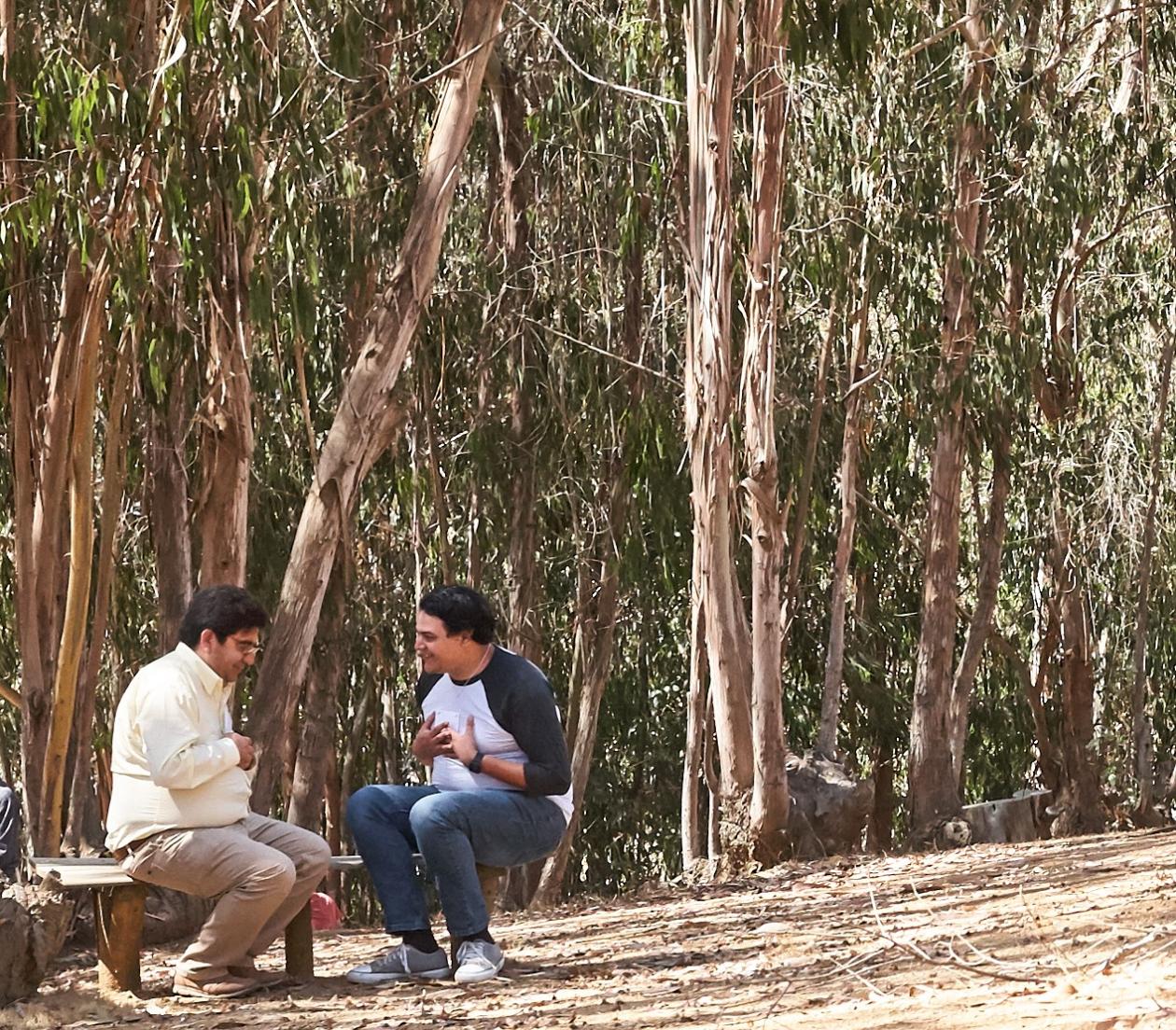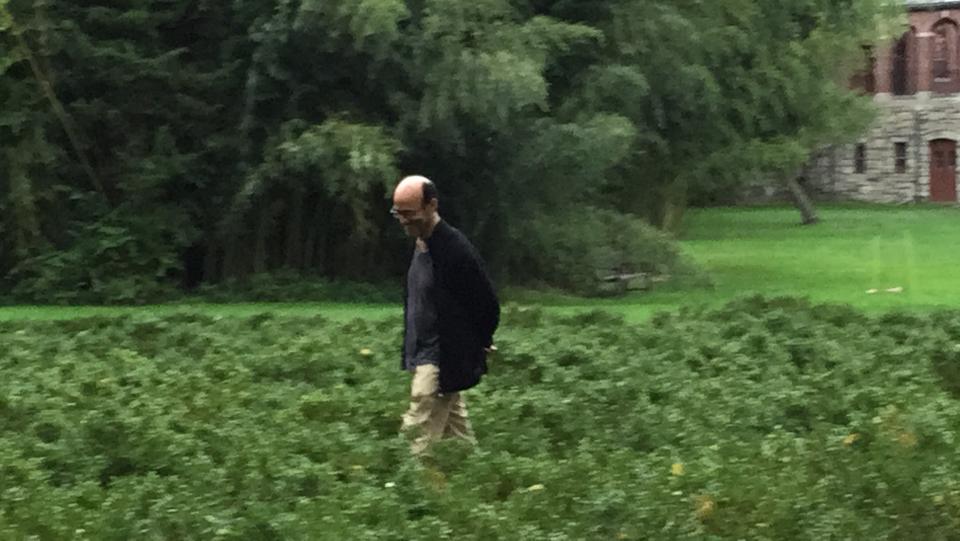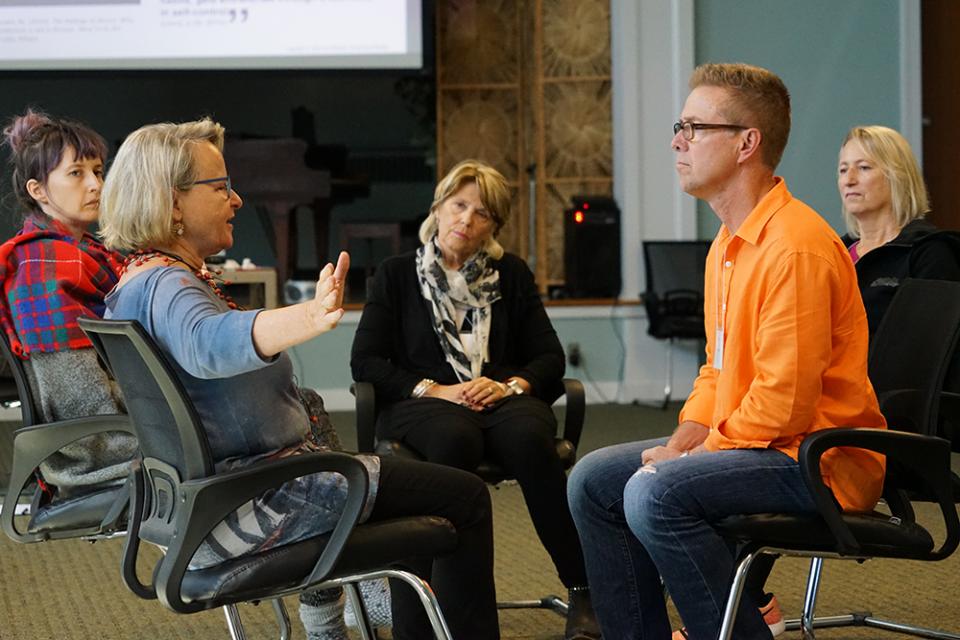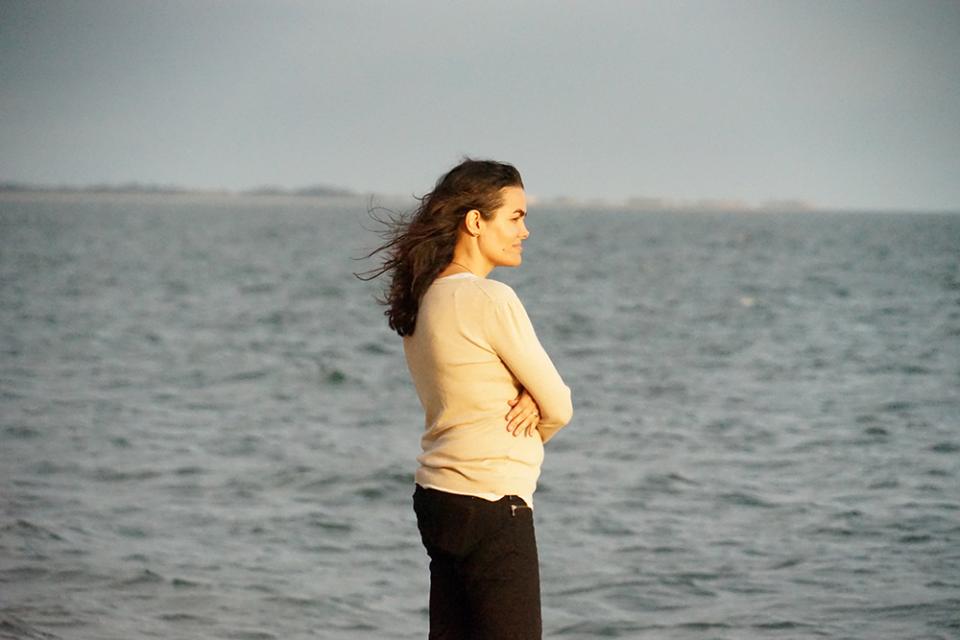OVERVIEW OF Focusing
(see a different overview of Focusing in Romanian)
Focusing is an experiential, embodied and evidence-based practice of self-reflection. During Focusing , your attention will open up to multiple layers and aspects of living. It’s called Focusing because it requires a special kind of focus to notice what is not yet clear, fuzzy and vague, implicit in how you interact with your situations and environment. This fuzzy dimension of experience is called the “felt sense." Focusing on the felt sense allows an in-depth clarification process to happen. Sometimes this leads to an amazing experience that the body is reliable in its living-forward tendency.
For some persons, Focusing is a very natural process, while others can do it only after some training. The subtle movements experienced during a Focusing session have the potential to transforms the framework of thinking and stuck emotional patterns. In the speed of your daily life, and in the overflow of information, Focusing is helpful to get a clearer sense for anything that matters to you among the complexities of life. The practice has been found to enhance well-being, meaning in life, and all kind of healing and creative processes. Ongoing research since the 1960s robustly demonstrated that clients who get in touch in a Focusing way with their experiential process, are more successful in psychotherapy than those who do not know this act of embodied self-reflection.
Focusing is often compared to Mindfulness, Zen and different kinds of meditations. They are related in cultivating non-judgmental attention to the “here and now” that can be felt in the body. Focusing is different from its “neighbors” because bodily felt sensing creates a space for meaning to be freshly formed. Focusing engages language more than its “neighbors." That’s because during Focusing you use language to explicate how you experience something, and thus learn how to (re-)connect language to your ongoing experiencing body. Therefore, Focusing is considered a process that integrates feeling and thinking, body and mind.
While Focusing can be done alone, it is mostly done together with another person. Focusing goes hand in hand with a thorough-going practice to listen in a non-intervening, attentive, open-minded and open-hearted way to each other. In this respect, Focusing is a practice to generate a space for yourself and the other to allow the exploration of the felt-sense dimension of human living to happen.
APPLICATIONS OF Focusing AND Felt Sensing
Focusing has found applications in a broad range of fields, beginning with psychotherapy and extending to healthcare, education, parenting, decision-making, conflict resolution and more. It is central to the methodology of Community Wellness, a compassionate, holistic and culturally-sensitive approach to providing social services and community-building in countries experiencing warfare, health crises, poverty, oppression and their aftermath. Training programs in Focusing for indigenous social workers and counselors have been established in Afghanistan, Pakistan, El Salvador, Gaza, Canada and West Africa.
This page offers some basic information. Please search our site for many free articles and information about Focusing , the Philosophy of the Implicit, and Thinking at the Edge (a second practice based in felt sensing). On our events page, you can search for Focusing classes and courses offered directly by the Institute or by our many certified teachers. Our "Find a Certified Focusing Professional" allows you to search for Focusing therapists and teachers in certain areas, certain languages and with certain specialties. In our store, you can purchase books and videos, or sign up for one-on-one Zoom sessions to learn Focusing.
PAUSE
We invite you to pause ...
Focusing shows how to pause an on-going situation and create a space for new possibilities for carrying forward. This practice shows how to apply open attention to something which is directly experienced but is not in words.
Your body knows more about situations than you are explicitly aware of. For example, your body picks up more about another person than you consciously know. With a little training, you can get a bodily feel for the "more" that is happening in any situation. From that bodily feel come small steps that lead toward resolution. The International Focusing Institute offers many resources for learning to access this bodily knowing.
To read more about practical applications of pausing in ongoing situations, see Mary Hendricks Gendlin's article about the Revolutionary Pause
A CERTAIN KIND OF AWARENESS
With Focusing , we invite ourselves into a certain kind of awareness. In our everyday lives, most of us spend a great deal of our time with our attention on tasks or issues. Many of us ignore or even try to silence our inner, bodily-felt experiencing of all that is happening in our lives. In contrast, the Focusing attitude is an invitation we offer ourselves to be open and centered on the whole of what is happening in the present -- most especially the usually-ignored body’s inner sensations. When doing Focusing , you silently ask, “How is the whole of me experiencing all of this?”
Perhaps all is well, and your bodily experience is one of calm and spaciousness. Or, perhaps there is something (or even many somethings) which are hindering your ability to feel good. That inside place might not respond quickly to your curiosity, but it does respond. By learning the practice of Focusing, we invite a much richer and more complex sense of our lives than a simple “feeling good” or “feeling bad.”
THE Felt Sense
As you wait attentively, something forms inside you that is vague, indefinite, difficult to put into a words. You try to describe this sensation and maybe a sentence comes, or an image, maybe a word or two. These words or images somehow seem to represent this sensation, even if they seem illogical. It might then become clear that your vague sensations have something to do with specific situations or experiences in your life. For instance, inner sensations of “I feel heavy,” or “It’s like an empty cave inside” might be related to a depressing situation you're facing. An exciting opportunity, on the other hand, might bring up words or images such as, "My whole being feels like it is expanding, getting larger," or, "I feel like a jaguar inside, ready to sprint." Such seemingly opposite sensations can even be present at the very same time.
The vague, not-yet-fully-articulated experiencing is called a “felt sense.” It is more than simply a "gut feeling" or an "intuition," and it is more than thoughts or feelings. The "felt sense" is, rather, the sense of the whole of a situation. The felt sense can include thoughts, feelings and intuitions, but a felt sense is somehow more than all that. Many times, if we don't know how to listen to our felt senses , we might find ourselves asking, "Should I follow my heart or my head? My gut or my logical mind?" In any given moment, our "gut" can say one thing, while our mind insists on something else entirely. The value of Focusing is that we learn to open up ourselves to the whole of our body's experiencing. In Focusing , we don't choose between disagreeing parts of ourselves; rather, we ask ourselves what it is like to experience all of it. The felt sense is that fuzzy, yet-to-be-articulated sense of the whole. Felt senses are full of our felt meaning of a situation. Learning to listen to the felt sense through Focusing allows us to hear the messages that our bodies are sending us. Recognizing the felt sense is the important first step of Focusing . For more see our webpage on the Felt Sense .
STAYING WITH THE FELT SENSE: The heart of the Focusing process
Focusing is the ability to stay with the felt sense as it develops, to look at it with curiosity, without judging. It is the ability to welcome what comes, to maintain a friendly attitude to whatever is inside you. Focusing is the ability to listen to that place that is trying to tell you something and being ready to be surprised.
Staying with the felt sense helps you comprehend that which some part of you is aware of, but that you don't yet fully know. As you pay attention in a Focusing way to the felt quality of your current experiencing, you develop new expressions: words that are fresh, appropriate and alive. The felt sense expresses itself to you in words and symbols which evoke how your past and present experiencing is alive for you in the present moment. That experiencing was below your awareness, but not below the awareness of the body.
Focusing GIVES YOU A BETTER CAPACITY TO FIND CREATIVE SOLUTIONS
When, through Focusing , you come in contact with this sea of experience carried in your body, you come to understand how you are living a situation, a relationship, a problem or a challenge. As you search to give words for what you feel, there is often a wonderful result. Something inside you changes. You relax; your body becomes more energized, because something you'd been holding is released. Often, a sense of gratitude or wonderment comes. Often there is a physical change such as a deep breath or a relaxation of the shoulders or other areas where there's been tightness. This change, which is perceived directly in the body, is called a "felt shift.” New possibilities emerge from what had been "stuck" places. This felt shift is the immediate benefit of Focusing , and how you live forward from that new relationship with yourself is the long-term benefit of Focusing.
Eugene Gendlin introduces Focusing : International Conference Toronto 2000 (12 minute excerpt)
Focusing Demonstration
See Focusing Demonstration by Ann Weiser Cornell -
Credit: Ann Weiser Cornell, Focusing Resources, https://focusingresources.com/
BENEFITS OF FOCUSING
Once learned, Focusing can become a resource in all moments when you want to be in touch with your felt sense, with your intuition and with the wisdom that your body can give you. Focusing permits you to:
- understand what you are truly feeling and wanting
- surmount obstacles, make decisions and solve problems creatively
- become more attentive and friendly to yourself and others
- integrate body, mind and spirit
- find relief from tension and chronic pain
- be independent from external belief systems
- deepen and make more effective the process of counseling and psychotherapy
One man's experience of how Focusing benefitted him after the death of his daughter
Learn THE SIX FOCUSING STEPS




